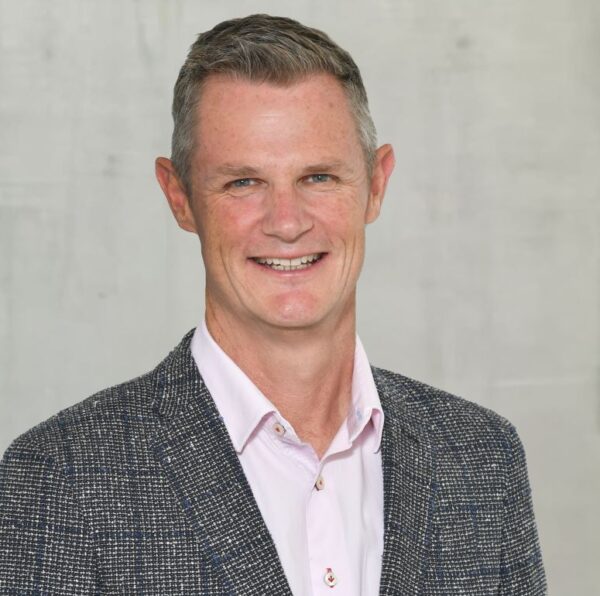Former ASB Bank boss and Deloitte/Management magazine Executive of the Year, Ralph Norris, could have quit at the top. Instead he put his hard won and high profile reputation and the future of New Zealand’s national airline on the line. Can he weave his managerial magic over the national carrier? If successful his legacy could be the best rescue management case study in New Zealand’s corporate history. If not, it could record his professional obituary. Why did he do it and how will he pull it off?
Air New Zealand’s new managing director and CEO Ralph Norris leads rich fantasy life. At least that was the prevailing response to his insistence that the Government’s ($885 million) 82 percent stake in the nation’s airline will not clutter his rescue mission with non-commercial agendas.
Any suggestion that politicians will interfere in operational decisions is persona non grata. “We can’t divorce business from the community. But that doesn’t mean we should be any more obligated than any other commercial organisation in the country,” says Norris.
Certainly the entree of four new independent Air NZ directors, friends and associates of Ralph Norris: Jane Freeman, Warren Larsen, John McDonald and Ken Douglas – removes the likelihood of the heated boardroom tussles many were expecting.
In fact, with little airline experience between them, the directors are unlikely to challenge Norris, who as MD retains his comparatively long-standing (three years) seat on the board. Even the airline’s new chairman, former Trustbank chairman, John Palmer, has no greater airline industry experience than Norris.
After only four days in Air NZ’s corporate cockpit, Norris admitted to being short on rescue mission specifics. former banker with no direct experience running an airline, he doesn’t claim to have all the answers to Air NZ’s problems. With the airline’s stabilisation strategy (tackling operating costs and repaying short-term borrowings) currently under execution, he can now focus on the big picture stuff.
No strings attached
But on three counts Norris says there are no doubts. Firstly, Air NZ will remain publicly listed. Second, like Palmer he doesn’t see the Government’s equity stake as anything more than short-term recapitalisation platform. And he doesn’t like the idea of the Government holding equity in the airline any longer than necessary. “I’d be lot happier for Government not to be shareholder in the business. I don’t think investment in an airline is desirable for government. I expect their shares to be disposed of over time.”
The notion that Air NZ has either been re-nationalised or become government-controlled by virtue of its current majority ownership is, he says, specious. And he refuses to accept that management’s job is negatively altered by the Government’s 82 percent ownership. The only commitment he shares with Government is passion for retaining national airline. Air NZ has been profitable business, and Norris is adamant it can be again.
“It makes positive contribution to many other sectors of the New Zealand economy – such as tourism and other commercial sectors that need access to strongly New Zealand-focused air carrier operating comprehensive nationwide air transport network – and dependable international connections to strategically important markets,” he says adding that no other carrier has as much incentive to meet these needs on commercially sustainable basis.
“My job is to get on and run the business commercially – not as an arm of social policy. I wouldn’t have taken the role if I’d seen Air NZ as an arm of Government. I’m here to steer this company around and I believe the relationship between management and the board will be good one.”
People factor
Thirdly, Norris believes that the key to Air NZ’s turnaround comes back to time-honoured management and leadership skills. That means drawing on the 9600 Air NZ staff to help make the airline an industry frontrunner again.
Central to Norris’ management philosophy is passion for excellence in customer service, and firm belief that people are the most important source of competitive advantage. “That means involving them in the planning, gaining their understanding and commitment to the strategy, providing the right motivation, and the positive results come.”
With his senior management team, Norris is developing most of Air NZ’s big picture strategy from blank page, and this will take time. “We’ve got to change our approach, it’s all about reinventing and reshaping the airline. Running the company the way it’s currently run is not an option.”
Norris has no fixed-term contract with Air NZ. But as “turnaround” CEO, he believes it will take him the best part of three years to get most of the airline’s recovery in place.
Norris’ niggle
So why did Norris trade-in life as professional director for the job at Air NZ – only four months after walking away from the executive ranks? desire to complete unfinished business compelled him, at the 11th hour, to toss his hat into the ring. “I decided that I would have unfinished business that would continue to niggle away at me if I didn’t step-up to the mark with whatever skills I’ve developed as CEO – at time when Air NZ was in critical need of new one,” he muses.
The Government was not involved in the CEO selection process. Neither does it have any board representation, nor any influence over the board’s nominating process. As an independent board member Norris accepts some of the blame for Air NZ’s $1.4 billion loss – posted after cutting Ansett loose last September.
Completing his unfinished business means re-inventing the business model to ensure the organisation’s financial viability, strengthen the balance sheet, and provide good returns for shareholders.
Restoring profitability on key routes, improving low staff morale, resolving contract negotiations with pilots, refinancing and recapitalising the balance sheet, responding to predatory tactics by regional players (like Qantas), fostering regional global alliances (like Star Alliance) and addressing the worst trading conditions ever – are all pressing issues which Norris plans to attack.
But what must he tackle first? Before he can hope to overcome the company’s problems, Norris says he has to win the commitment of Air NZ people to make difficult changes. “I look forward to leading Air NZ management and staff to produce the solutions needed to rebuild the core strengths of the company and develop new competitive advantages.” Putting people first sounds like pretty good start point.
Why choose Norris?
But what qualities suggest Norris might be the best person for this job? For starters, he flat out rejects the notion that his lack of industry experience is major impediment.
A spate of recent controversial appointments to top jobs (on both sides of the Tasman) suggests that boards are rethinking who should run their businesses. The prevailing view has been that CEOs who possess the x-factor can successfully transpose this rare talent from one enterprise to another. If that’s possible, then track record is more important than direct industry experience. Does Norris subscribe to this view?
Surprisingly he doesn’t. However, he sees Air NZ as an exception to the rule.
He doesn’t believe that Air NZ’s problems are specifically related to airline industry experience. “The company has an excellent track-record as an airline operator. The problems we are concerned with are broader commercial issues: our positioning in rapidly changing and intensely competitive market, funding and financial management, the application of new technologies to the business, achieving internal and external acceptance and commitment to the changes we need to make. They are not really industry-specific,” says Norris.
Capability doubts
In principle, he’s right. But business commentator Rod Oram has grave doubts as to how much Norris can contribute to b











